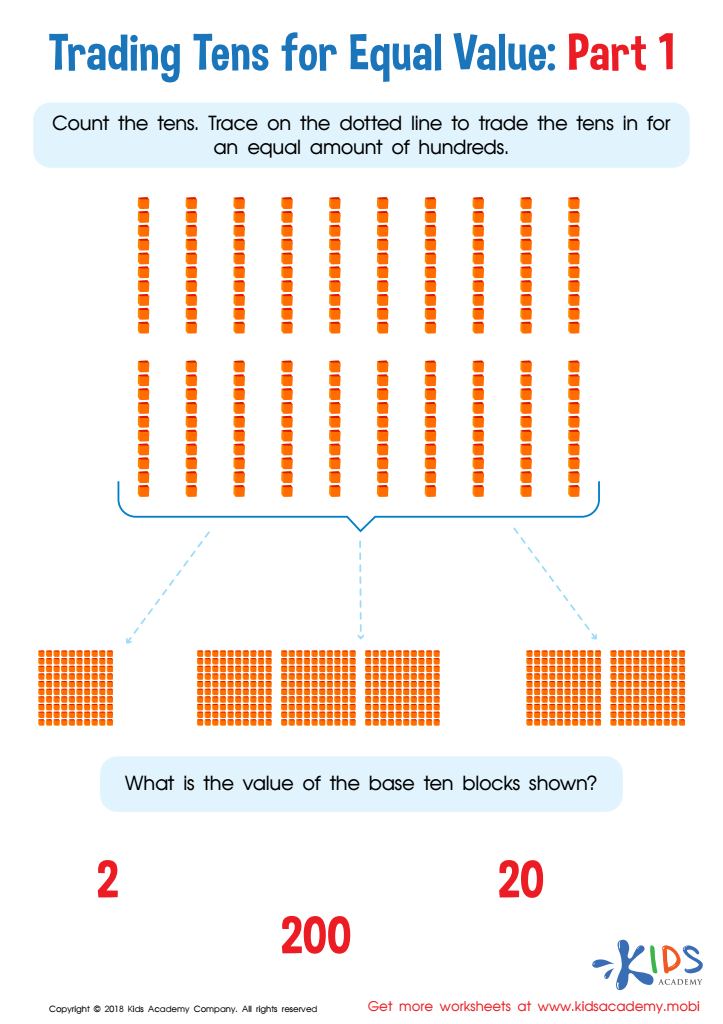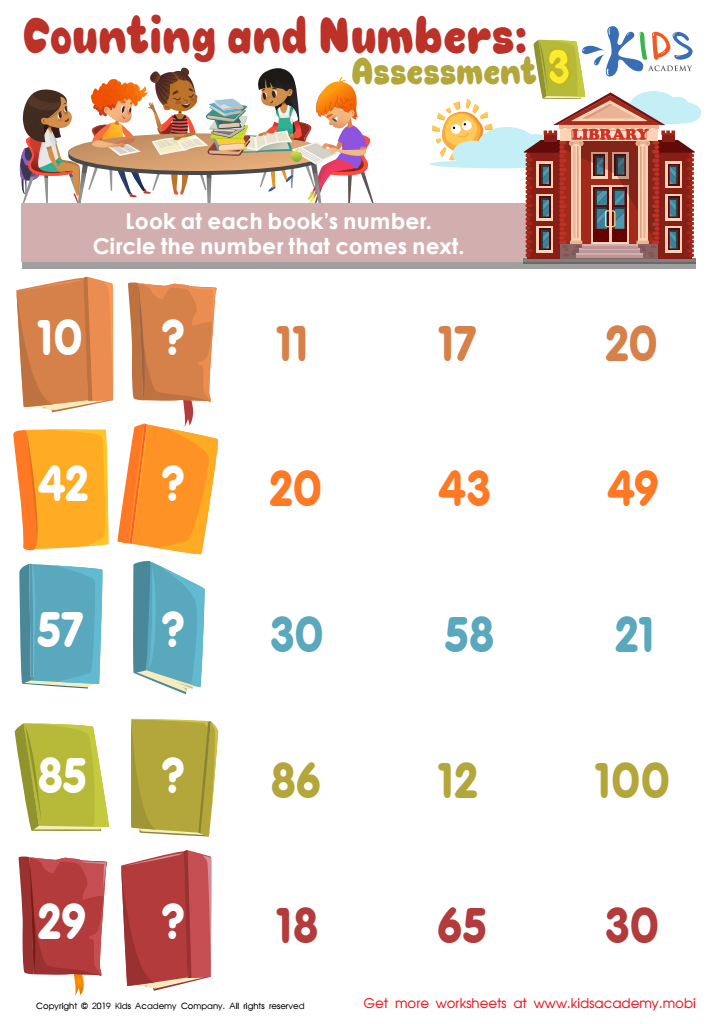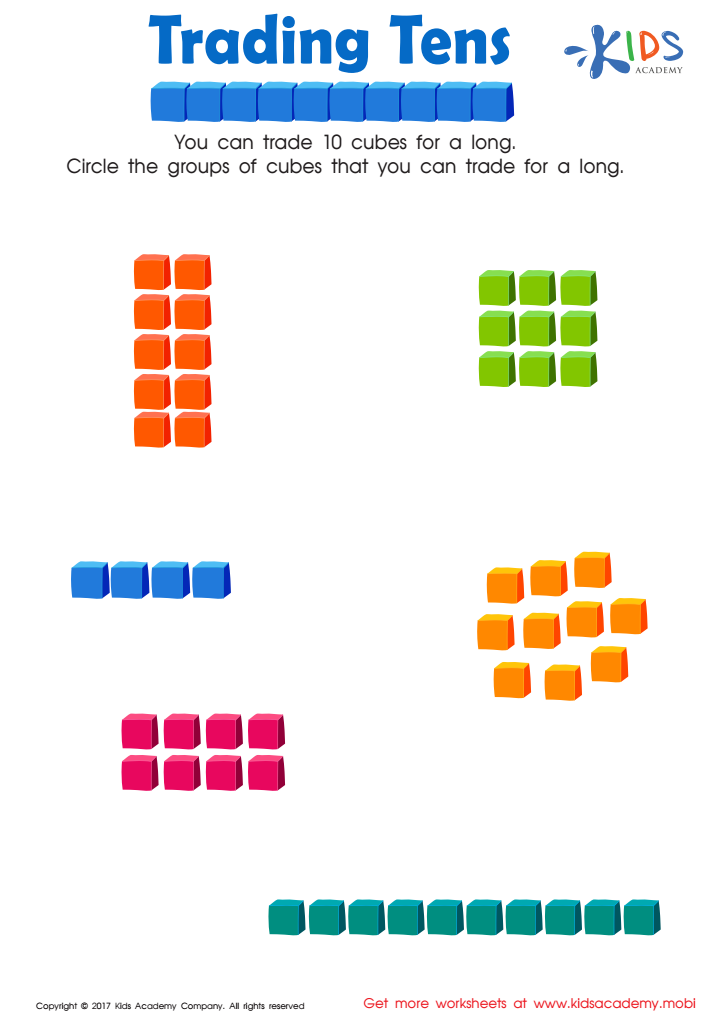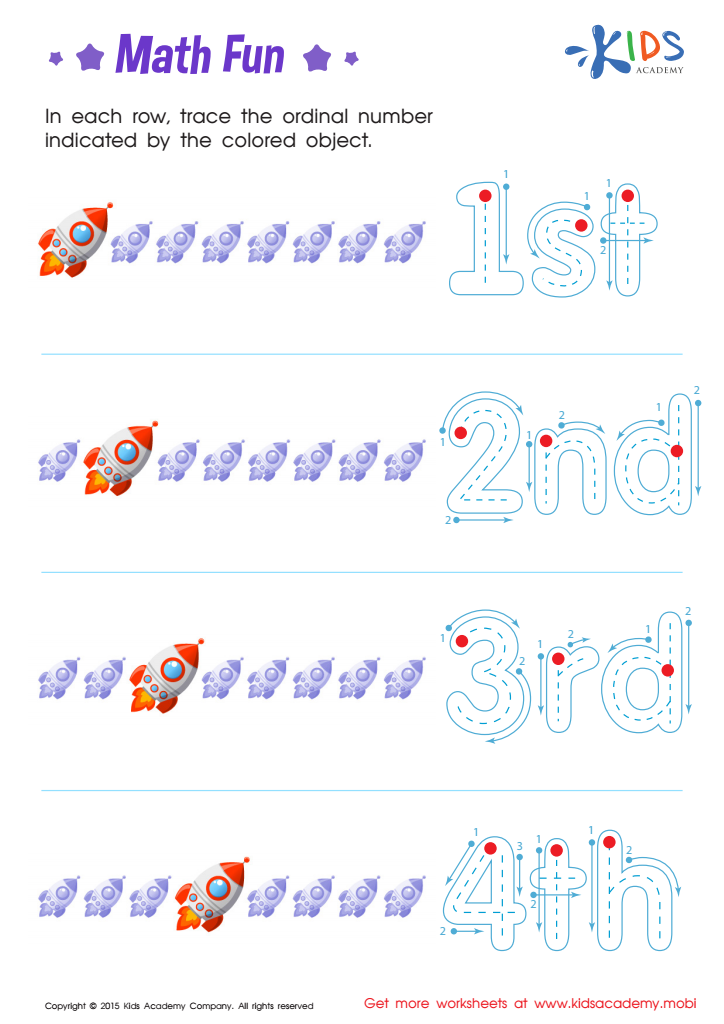Learning addition Normal Numbers Worksheets for Ages 6-7
4 filtered results
-
From - To
Explore our engaging Learning Addition Normal Numbers Worksheets, specifically designed for children ages 6-7. These worksheets offer a fun and interactive way for young learners to develop essential addition skills through colorful images and relatable scenarios. Each activity is aligned with educational standards, ensuring a solid foundation in mathematics. Kids will practice counting, combining numbers, and solving simple addition problems, all while building confidence in their abilities. Perfect for at-home learning or classroom reinforcement, our worksheets make math enjoyable! Dive into a world of numbers and give your child the tools they need to succeed in their early math journey.


Trading Tens for Equal Value Worksheet: Part 1


Counting and Numbers: Assessment Worksheet


Trading Tens Worksheet


Ordinal Numbers: Math Fun Worksheet
Learning addition of normal numbers is foundational for children aged 6-7, forming a critical building block for their mathematical development. First and foremost, mastering basic addition equips children with essential problem-solving skills, enabling them to approach everyday challenges with confidence. By grasping the concept of addition, children also develop their number sense, which is crucial for understanding more complex mathematical concepts later on, such as subtraction, multiplication, and division.
Furthermore, addition lays the groundwork for logical reasoning and critical thinking. When children learn how to combine numbers, they begin to recognize patterns and relationships, enhancing their cognitive skills. Practicing addition also fosters perseverance, as children learn to approach problems methodically, reinforcing a growth mindset.
From a social perspective, proficiency in addition enables children to participate in group activities and games that rely on basic math skills, enhancing their collaboration and communication abilities. For parents and teachers, supporting children in mastering addition is an investment in their future success—not just in academics, but in daily life, where numerical skills are frequently applied. Ultimately, cultivating a strong foundation in addition empowers children to thrive in an increasingly quantitative world.
 Assign to My Students
Assign to My Students
















